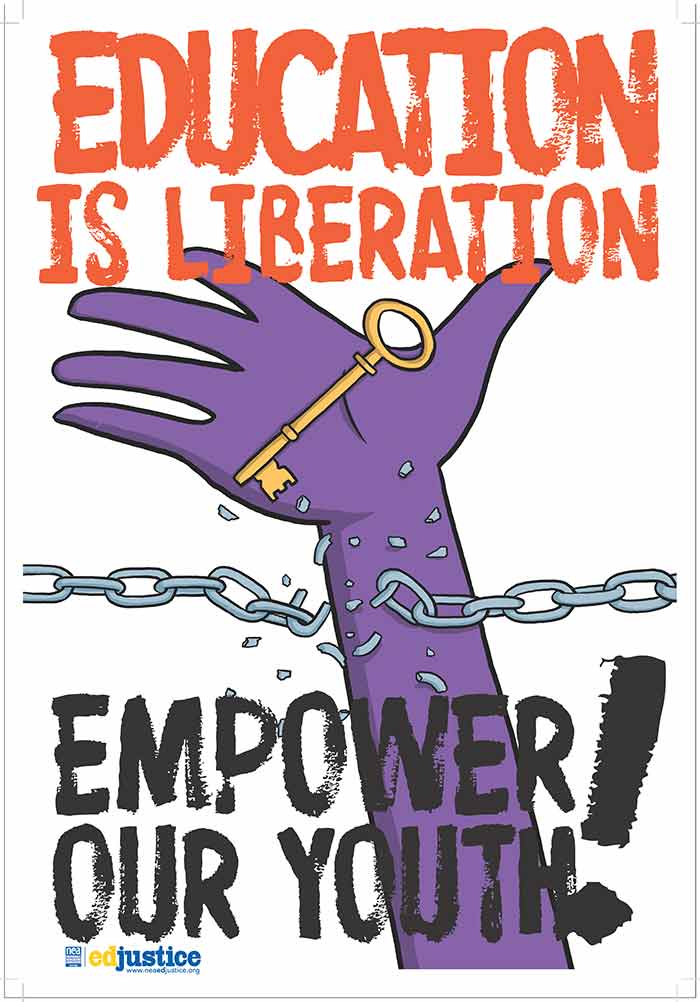
It has so come to pass that we only impart religion to our little bundles of joy while abandoning them almost exclusively to the not-so-innocent hands of schools for their ‘secular’ education. While there has always been a debate about how much state propaganda is really thrust down the throat of malleable minds at an early age to destroy their capacity to think independently for a lifetime, this is not the place to get into that debate. We accept the practical difficulty which all parents must face in rearing children and thus we accept the practical need for schools. We can do nothing else. Usually, we are too busy with our work lives and our social lives to be able to concentrate too much on educating our children. Thus, teachers are hired to do the job.
Over the years and decades, these practical considerations have given rise to a wholly unpractical illusion. Since teachers have been teaching children in schools for so long, we think children can only be taught in schools. We have come to think that education can only be imparted and received within the confines of state-certified schools and a person’s ‘educatedness’ can only be verified through state-certified exams. Nothing justifies this conclusion. In fact, this is a common enough inductive reasoning fallacy. Let us illustrate with an example. Just because Brahmins were the only ones allowed to study the Vedas, and all the people one met who could study the Vedas were presumably Brahmins, it did not follow that the Brahmins were the only people who could study the Vedas. Similarly, just because children are sent to teachers in schools to receive education, it does not follow that children can only receive education by teachers in schools. In fact, we already know this to be false empirically as many children in our country are not able to go to schools and yet a fair number of them turn out more ‘educated’ than the ill-formed products of our best educational institutions. By educated, I mean decent and kind human beings with a working knowledge of the world and the crafts they are engaged in; by educated I do not mean somebody who remembers the date when Gavrilo Princep assassinated Archduke Franz Ferdinand of Austria in Sarajevo. I think this definition of what it means to be educated can be accepted.
Over time, parents have been made to believe that there is nothing of value they can teach their children and all knowledge is confined to dirty blackboards within the paan-stained walls of schools. To discover why such a falsehood has been perpetrated is not the object of this article. (Since the state thinks of all children born within its confines as its children, as citizens of the future, it wants to lay claim to them as early as possible and cannot risk getting them into the wrong hands of their parents who might have god-knows what subversive ideas; the state can never act too early and it can never be paranoid enough.) What I want to do is simple. I want to give parents the confidence to believe that they are capable enough to educate their children. All parents are thus capable, no matter how illiterate and uneducated themselves.
In times of Corona children will not be able to go to school for quite some time to come and parents will not be able to work and socialize like they did earlier. The rich children in rich schools are being fed their education on digital devices while their parents ‘work from home’. The poor on the other hand have been left by the wayside. This attempt at intellectual emancipation, while aimed at everybody, is especially useful for the poor. Since they are being forced to spend more time with their children, they might as well use it to free themselves from the tyrannies of ‘knowledgeable’ teachers and certified schools.
The ignorant schoolmaster—five lessons in intellectual emancipation
While this book by Jacques Ranciere principally asserts that all humans have equal intellectual capacity and concerns itself with French pedagogical institutions, the practice of sociology in France and third-world dependency, I am specifically interested in the argument that ‘knowledge is not necessary to teaching, nor explication necessary to learning’. An ‘ignorant’ parent and their ‘ignorant’ child can learn everything there is to learn about the world because no one is ignorant enough to know nothing and if you know one thing, you can know everything else because ‘everything is in everything’; in other words, all one has to learn is how to learn, everything can be learnt thereafter. Anyone who has seen a toddler grow knows that auto-didactism is the rule in human learning, not the exception. The emancipatory method of learning is the method of an infant. Infants learn by paying attention to the world around them. They hear different sorts of codes and languages and they make sense of them by constant repetition and verification. This is what we have to do all our lives and this is what we are stopped from doing when we are made to believe that ‘experts’ have a monopoly on knowledge.
The parable of the ignorant schoolmaster is illustrated by Ranciere using the experiences of one Joseph Jacotot. In 1815, Jacotot was exiled from France by the Bourbons who had just returned to power. He was given asylum by the King of Netherlands. Having been a popular and famous lecturer in France, Jacotot was even given a professorship in the University of Louvain, albeit at half-pay. He was supposed to teach French literature. The only trouble was that many students who turned up for his lecture did not know any French and Jacotot himself did not know any Flemish. He did not send those students away but came up with a method by which the difficulty could be surmounted.
To do so, the minimal link of a thing in common had to be established between himself and them. At that time, a bilingual edition of Télémaque was being published in Brussels. The thing in common had been found, and Telemachus made his way into the life of Joseph Jacotot. He had the book delivered to the students and asked them, through an interpreter, to learn the French text with the help of the translation. When they had made it through the first half of the book, he had them repeat what they had learned over and over, and then told them to read through the rest of the book until they could recite it. The experiment exceeded his expectations. He asked the students who had prepared as instructed to write in French what they thought about what they had read: He expected horrendous barbarisms, or maybe a complete inability to perform. How could these young people, deprived of explanation, understand and resolve the difficulties of a language entirely new to them? No matter! He had to find out where the route opened by chance had taken them, what had been the results of that desperate empiricism. And how surprised he was to discover that the students, left to themselves, managed this difficult step as well as many French could have done! Was wanting all that was necessary for doing? Were all men virtually capable of understanding what others had done and understood?
Before this experiment, Jacotot had thought that the task of the professor was to learn something himself and explain what he had learned to his students. After the experiment, his views changed completely. He, who did not know Flemish at all, had been able with the aid of a single book to teach French literature to students who did not know French. The students had been able to learn French without his aid. Could not this be true of all students? Maybe a push and a thing in common is all that is needed for a willing student to learn anything. Maybe there is never a need for a master explicator.
Now let us carry this experiment and this example into the homes of today. Both children and parents are already learners who have learnt many things ‘organically’. They know the basic structure of learning. They know that one imitates, one checks, one corrects, one repeats, and one hits upon the right way of doing something. No master has to teach the child how to play cricket. He observes, he tries, he fails, he tries better, he fails better, he tries again and one day he succeeds. He has learnt. Similarly, most of the work that we do in our various employments was not taught to us in school. A simple labourer or farmer has learnt his trade without the benefit of a schoolmaster or a university degree. The basic operations of learning remain the same in all spheres of life. There is nothing special about the education imparted in schools that makes it different from any other kind of learning. Everything taught in schools can be learnt the same way that a farmer learns when and how to sow his seed; or a child learns at what angle to throw the ball for a good bouncer.
The intelligence that had allowed them to learn the French in Télémaque was the same they had used to learn their mother tongue: by observing and retaining, repeating and verifying, by relating what they were trying to know to what they already knew, by doing and reflecting about what they had done. They moved along in the way children move, blindly, figuring out riddles.
Let’s take the case of English, which is possibly the most useful thing taught in Indian schools from the point of view of promoting socio-economic equality. Does the parent need to know English to teach his child English? If one is to believe the propaganda about it, not only regular schooling but expensive tuitions are necessary for a child to learn English from an ‘expert’ in the language. Ranciere argues otherwise. The parent doesn’t need to know English, all the parent needs to do is give the child a dictionary and a book written in English (any easily available literature would do, like Ambedkar) and then check that the child is learning English by asking the child to repeat what he has learnt over and over again.
Any work of language is understood and executed the same way. It is for this reason that the ignorant one can, as soon as he knows himself, verify his son’s research in the book he doesn’t know how to read: he doesn’t know the materials he is working with, but if his son tells him how he goes to work at it, he will recognize if his son is doing research, because he knows what seeking, researching, is. He has only one thing to ask his son: to move words and sentences back and forth, as he himself moves his tools back and forth when he is seeking.
The child must be able to talk about everything he learns, to say what he sees, what he thinks about it, what he makes of it. There will be only one rule—he must be able to show, in the book, the materiality of everything he is saying. The child has to be asked to use the words and rules of grammar he has learnt from the author. The idea is for the child to explain every sentence of the English text with the use of other sentences in the book. He has to use the other words available in the text to say what any given sentence means. That is what any of us do when we learn a language; we build up the capacity to use the words of others to say what we mean. The parent merely has to check if the child is using the same sounds to explain the same sentence from one day to the next.
All that is necessary for the parent is to command that the child do so. The child in an effort to understand and learn is capable of doing the rest. This will take time but it will make the child realize that he is capable of learning anything at all without the aid of an explicating master, a lesson that cannot be valued enough; and it will make the parents understand that they don’t need to despair because of the bad quality of the local school and spend money on expensive tuitions, they are capable of teaching their children everything by merely commanding them to learn and verifying that they actually have. And why limit this education to the children, the parents themselves can learn by this procedure.
The method of equality was above all a method of the will. One could learn by oneself and without a master explicator when one wanted to, propelled by one’s own desire or by the constraint of the situation.
I believe this is necessary in ‘normal’ times to reduce the gap between the rich and the poor that is still increasing partly because of the increasing expenses of education. It is even more necessary now in times of Coivd-19 when the rich are still ‘going’ to school through devices that the poor can’t afford. This attempt at intellectual emancipation has to be made lest this time also be used to increase the gap between poor and rich students.
Akshat Jain is a writer currently residing in India. He uses the debate methodology of Syādvāda to piss people off. Like a good Syādvādist, he claims that all his claims fall within the ambit of falsifiability.
SIGN UP FOR COUNTERCURRENTS DAILY NEWS LETTER









































